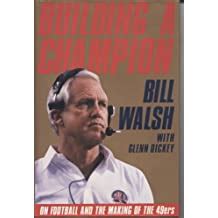A Quote by Bill Walsh
A harsh reality of newspaper editing is that the deadlines don't allow for the polish that you expect in books or even magazines
Related Quotes
You must stop editing--or you'll never finish anything. Begin with a time-management decision that indicates when the editing is to be finished: the deadline from which you construct your revisionary agenda. Ask yourself, 'How much editing time is this project worth?' Then allow yourself that time. If it's a 1,000-word newspaper article, it's worth editing for an hour or two. Allow yourself no more. Do all the editing you want, but decide that the article will go out at the end of the allotted time, in the form it then possesses.
Of course, to publish something, you have to write it, polish it, then hire out the line editing, copy editing and cover design. After which, you pick your way through the minefield of conforming to the differing requirements of Amazon, Barnes & Noble and Smashwords, or hire someone to do it for you.
Until I read Anne Frank's diary, I had found books a literal escape from what could be the harsh reality around me. After I read the diary, I had a fresh way of viewing the both literature and the world. From then on, I found I was impatient with books that were not honest or that were trivial and frivolous.
All three parts of filmmaking [writing, shooting, editing] contribute to rhytm. You want the script to be a tight as possible, you want the acting to be as efficient as possible on the set, and you have enough coverage to manipulate the rhythm in the editing room, and then in the editing room you want to find the quickest possible version, even if it's a leisurely paced film. I definitely in filmmaking more and more find writing and directing a means to harvest material for editing. It's all about editing.
I still think of myself as a newspaper guy and you live by deadlines in the newspaper world, so, they don't really give you any excuses. At the paper they never say, "Well, we just won't have Tuesday's paper come out, we'll just bring Tuesday's paper out on Wednesday, so go ahead, take all the time you need." They come out with that paper regardless.



































